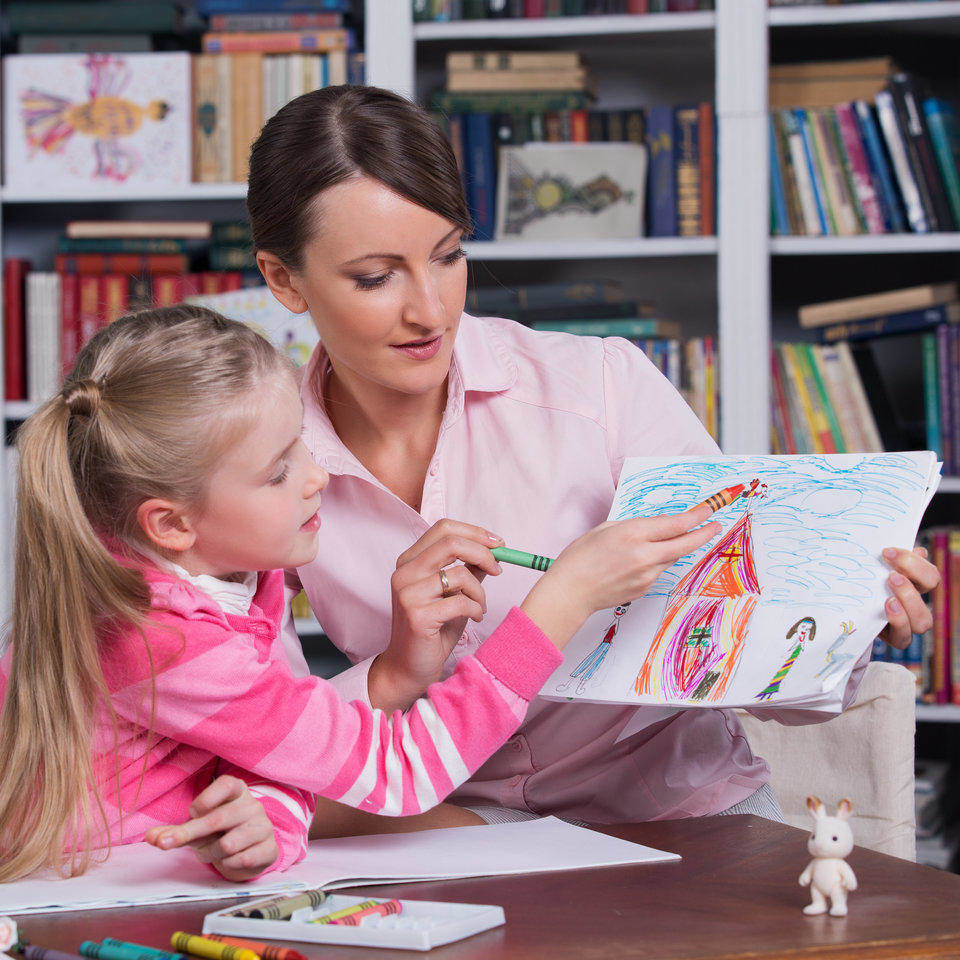Understanding how children grow, learn, and develop emotionally can provide invaluable insights for parents, teachers and caregivers. In this blog, we’ll explore the fascinating field of child psychology, delving into the stages of child development and the biological factors that influence their growth. By gaining insights into child psychology, we can all become better at creating nurturing environments that empower children to reach their full potential.

What is Child Psychology?
Child psychology studies how children develop mentally, emotionally, and socially: from infancy through to adolescence. It focuses on understanding the cognitive, emotional, and behavioural processes that shape a child's growth and functioning.
Several theories shed light on different aspects of children's growth and provide frameworks for understanding child development.
Piaget's cognitive development theory
Piaget's theory proposes that children actively construct knowledge through their experiences and interactions with the environment. He identified distinct stages of cognitive development, including the sensorimotor, preoperational, concrete operational, and formal operational stages. Each stage was characterised by specific cognitive abilities and ways of understanding the world.
Erikson's psychosocial development theory
Erikson's theory emphasises the psychosocial challenges that individuals face at different stages of life. It highlights the critical tasks and conflicts that children encounter as they navigate through various developmental stages (such as trust versus mistrust, autonomy versus shame and doubt, and identity versus role confusion).
Vygotsky's sociocultural theory
Vygotsky's theory focuses on the role of social interactions and cultural influences in shaping children's cognitive development. It highlights the importance of language, social scaffolding, and cultural tools in facilitating children's learning and problem-solving abilities. Vygotsky's concept of the "zone of proximal development" suggests that children can achieve higher levels of understanding and competence with the guidance and support of more knowledgeable individuals.
The Stages of Child Development & Psychology
- Infancy (0-2 years)
Infants rapidly develop physical, cognitive, and social-emotional abilities. Milestones in this stage include motor skill development, including rolling over, sitting up, crawling, and walking. Cognitive development involves the emergence of object permanence and basic problem-solving skills. Additionally, infants form crucial attachments and bonds with their primary caregivers, which contribute to their emotional well-being and future relationships. - Early Childhood (2-6 years)
Early childhood is a period of significant cognitive and socio-emotional development. It’s when children start to express themselves more effectively through language. Cognitive growth involves the development of imaginative play, memory, and early mathematical concepts. Emotional development and self-regulation skills also progress during this stage, as children learn to identify and manage their feelings and interact with peers and adults in social settings. - Middle Childhood (6-11 years)
Middle childhood is characterised by notable advancements in cognitive abilities and social development. At this stage, children refine their cognitive skills, including critical thinking, problem-solving, and abstract reasoning. Academic learning becomes more structured, and children develop a greater sense of competence in specific areas. Peer relationships also become increasingly important, and children learn to navigate social dynamics, establish friendships, and develop a sense of belonging within their peer group. - Adolescence (11-18 years)
Adolescence is a period of rapid and transformative development. Identity formation becomes a central focus, as adolescents explore and establish their sense of self, values, and beliefs. Puberty brings about hormonal changes and physical maturity. Adolescents face unique challenges, including increased independence, peer pressure, and decision-making. It is a critical stage for developing healthy relationships, self-esteem, and coping mechanisms to navigate the transition into adulthood.

Biological Factors That Can Affect Child Development
Genetics and Hereditary Factors
Genetic factors play a significant role in child development. Physical characteristics and predispositions to certain diseases are passed down from parents to children. Genes and the environment also play a role in child development. Genetic predispositions can be influenced positively or negatively by environmental factors like nutrition, exposure to toxins, and early life experiences. These interactions contribute to the complexity of child development and individual differences among children.
Brain Development and Neurological Factors
The developing brain plays a crucial role in child development. Different regions of the brain mature at various stages, influencing cognitive, emotional, and behavioural development. Critical and sensitive periods are times when specific experiences or stimuli have a significant impact on brain development. Also, neuroplasticity (which is the brain's ability to reorganise and form new connections) allows for learning and adaptation throughout childhood.
Proper nutrition and physical health are fundamental for optimal development. Adequate nutrition supports brain development, cognitive functioning, and physical growth. Malnutrition, including deficiencies in essential nutrients, can have detrimental effects on both cognitive and physical development. Insufficient nutrition can impair cognitive abilities, attention span, memory, and academic performance in children. It can also lead to stunted growth, delayed motor skills, and compromised immune function.
Environmental Influences on Child Development
Child development is not solely determined by biological factors, as the environment also plays a crucial role in shaping their development.
Parenting styles and attachment
Parenting styles and the quality of attachment between a child and their primary caregivers greatly influence child development. Authoritative parenting (characterised by warmth, support, and appropriate discipline) fosters healthy development. In contrast, authoritarian, permissive, or neglectful parenting styles can hinder a child's emotional well-being and social competence.
Socioeconomic factors
Family income, education, and access to resources can all significantly impact child development. Poverty and income inequality can create stressors and limit opportunities for children. Adequate access to education, healthcare, and social support systems are essential for promoting positive outcomes and reducing developmental disparities.
Cultural and societal influences
Culture and society play a significant role in shaping child development. Cultural norms, values, and practices influence parenting styles, socialisation patterns, and a child’s sense of identity. “‘Typical’ gender roles” and stereotypes also impact child development, shaping children's expectations and behaviours.
Media and technology's influence on child development
In today's digital age, media and technology have a profound impact on children. Excessive screen time and exposure to inappropriate or violent content can negatively affect cognitive development, attention span, and social interactions. Careful management of media consumption is crucial for supporting healthy child development.
The Role of Child Psychologists
Professional child psychologists specialise in studying and assessing children's psychological well-being and development. They utilise various research methods and assessment tools to gain insights into children's cognitive, emotional, and social functioning. Child psychologists also help to diagnose and treat developmental disorders, providing therapeutic interventions, and offering guidance to parents and educators to promote healthy child development.
To deepen your knowledge in this field, check out our accredited Child Psychology Diploma Course, available now for just £29 (save £118!). This course equips you with valuable knowledge and skills to better understand and support children's development. Investing in your understanding of child psychology empowers you to make a lasting positive impact on the lives of children, helping them flourish into happy, healthy, and well-adjusted individuals!





